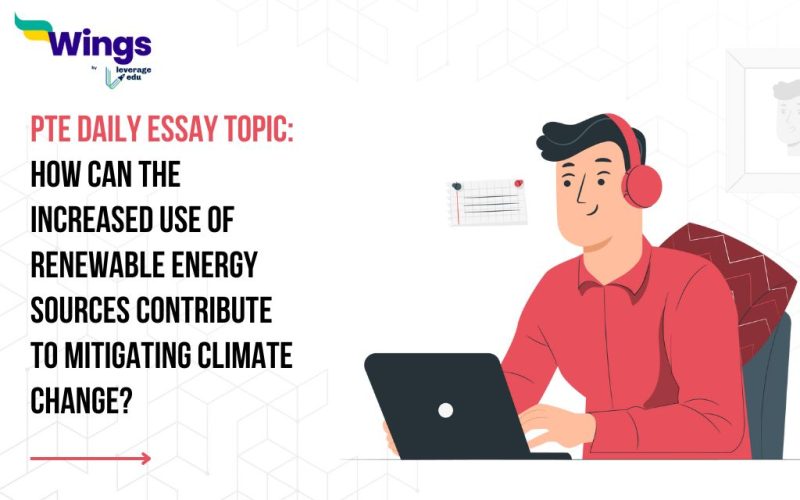Q. How can the increased use of renewable energy sources contribute to mitigating climate change, and what challenges might arise in the transition from fossil fuels to renewable energy?
Ans. Climate change is an undeniable threat, and transitioning away from fossil fuels is a crucial step towards mitigating its effects. Increased use of renewable energy sources offers a powerful solution. Unlike fossil fuels, which release greenhouse gases when burned, renewables like solar, wind, and geothermal generate clean electricity with minimal environmental impact. This essay will explore how a shift towards renewable energy can combat climate change and the challenges that may arise during this transition.
The primary contribution of renewable energy lies in its ability to curb greenhouse gas emissions. Fossil fuel power plants are major emitters of carbon dioxide, a key driver of global warming. By replacing these plants with renewable sources, we significantly reduce our carbon footprint. Solar and wind farms, for instance, produce electricity without releasing harmful emissions, thereby slowing the rate of climate change. Additionally, renewable energy sources are often locally available, reducing dependence on fossil fuels that can be geographically concentrated and subject to price fluctuations. This not only enhances energy security but also promotes cleaner air and improved public health by minimizing air pollution associated with fossil fuel combustion.
However, transitioning from a well-established fossil fuel infrastructure to a renewable energy system presents significant challenges. The initial cost of installing solar panels, wind turbines, and geothermal plants can be high, requiring substantial upfront investment. Additionally, the efficiency and reliability of some renewable sources can be variable. Solar panels, for example, do not generate electricity at night, and wind turbines depend on wind speed. This necessitates the development of better energy storage solutions to ensure a consistent and reliable supply of power. Furthermore, a shift towards renewable energy might lead to job losses in the fossil fuel sector, requiring workforce retraining and economic diversification efforts.
In conclusion, while challenges exist, the benefits of renewable energy outweigh the drawbacks. By embracing renewable sources, we can significantly reduce greenhouse gas emissions, improve air quality, and foster energy security. By acknowledging and addressing the transitionary hurdles through technological advancements, economic planning, and social support, we can pave the way for a more sustainable future powered by clean energy.
Are you preparing for the PTE Exam? Check out the blogs below to bolster your chances of securing better scores in the PTE exam.
| Related Blogs | ||
| PTE Exam Pattern – How to Crack the … | PTE – An Exam That Takes You To Places | PTE Writing Essay-Questions Samples |
| PTE Syllabus – Know It Inside Out | PTE Exam: Everything You Need To Know | PTE Exam Pattern for Academic and General |
Download the Leverage App today.


Need help preparing for PTE? Check out the best PTE preparation courses in the market offered in a live training environment by trusted educators. If you want to help studying abroad, call 1800572130.


 One app for all your study abroad needs
One app for all your study abroad needs












 60,000+ students trusted us with their dreams. Take the first step today!
60,000+ students trusted us with their dreams. Take the first step today!